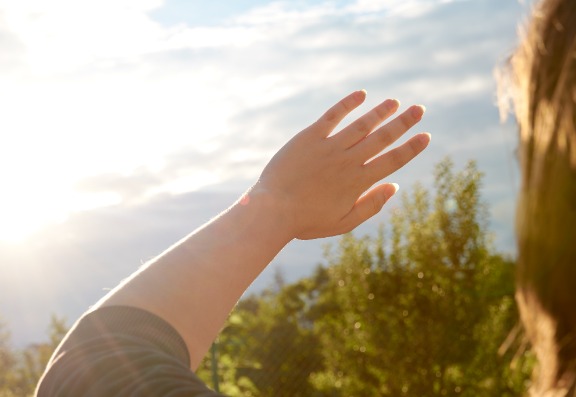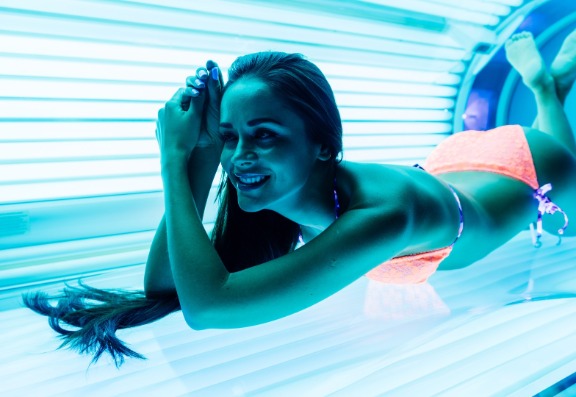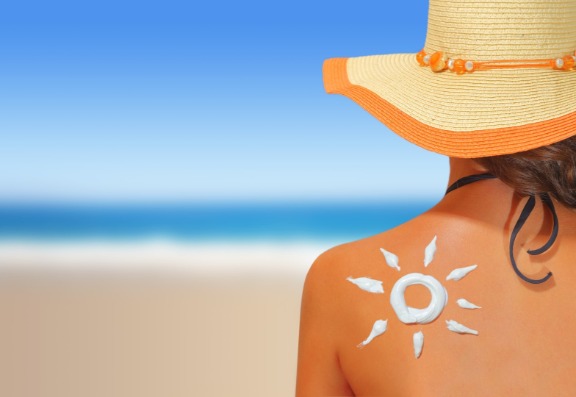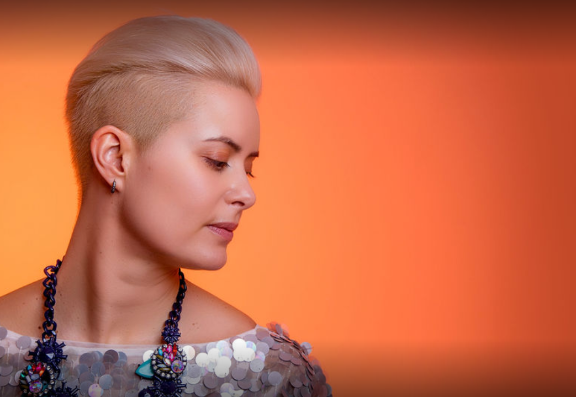Skin cancer and premature ageing probably aren’t the first things that pop into your head when you roll out your beach towel and lay down to catch some rays.
With the height of summer not too far away, it’s important to remember that the sun can have a huge impact on the health of our skin.
Of course, I’m not saying you can’t enjoy the sun. It’s a great source of vitamin D, which is essential for a healthy body and mind.
Plus, I love being out in the sun myself, but UV radiation from sunlight is one of the biggest risk factors not only for premature ageing but also for skin cancer.
As May is Skin Cancer Awareness Month, I thought there’s no better time than now to talk about the effects of UV radiation, and how you can protect yourself.
When it comes to our skin, it’s not just sunburn we have to worry about when we’re out in the sunshine. Excessive sun exposure can have some nasty long-term effects, one of which is premature skin ageing (otherwise known as photoaging).
UV radiation changes our skin at a cellular level, affecting the deepest point – the dermis. That’s why signs of ageing don’t happen immediately, but as we get older, lines and wrinkles begin to increasingly appear. In fact, up to 80% of skin ageing can be attributed to UV radiation.
But wrinkles aren’t the only thing we need to worry about. Excessive sun exposure can lead to something much more serious: Skin cancer.

Skin Cancer Facts
Skin cancer is one of the most common forms of cancer in the UK, and rates are increasing faster than any other cancer. Men and women are equally susceptible, and there are a number of risk factors that can play a role in this disease development.
Overwhelmingly, the single most contributing lifestyle risk factor is significant sun exposure. Around 90% of all skin cancers are caused by over-exposure to UV radiation.
Paler skin types are more prone to skin cancer than skin that has darker pigmentation, and outdoor work, compromised immune systems and incidences of severe sunburn can all increase the risk.
There are a number of different types of skin cancer, including squamous and basal cell carcinomas. However, melanoma is often considered the deadliest form, as it has the tendency to spread.
Each of these cancers can present differently, so it’s important to check your skin regularly. Look out for any changes in the size and shape of moles, rashes or raised areas that develop and don’t go away, or any developing lumps or growths.
But it’s not all bad news.
According to Cancer Research UK, 86% of melanoma skin cancer cases are preventable.

Protecting Your Skin
So, how can we help reduce our risk of skin cancer and premature ageing?
No one wants to avoid the sun entirely, but there are certain things you can do to lessen your exposure to harmful UV rays.
First of all, avoid sunbeds at all costs. Even if you tan easily, this sort of direct exposure to UV radiation for extended periods of time is terrible for the health of your skin, and a huge risk factor for skin cancer.
Getting a fake tan is so much safer, and there are some great options available. This includes having it professionally done at a tanning salon, or in the comfort of your own bathroom using an at-home kit.
Alternatively, in the clinic, I offer a fantastic tanning lotion with an impressive SPF of 50. It achieves natural-looking results by gradually building a tan.
Stay in the shade wherever possible, and wear sunglasses and hats to shield yourself when in the sun.
Try to avoid being in the sun for long periods when it’s at its hottest – usually between 10am and 4pm.
Never Forget Your Sunscreen
The most important thing, and it’s something you’ve probably heard me say a million times by now: ALWAYS wear sunscreen!
Make sure you check the label and use a broad-spectrum sunscreen with an SPF (sun protection factor) of at least 30. Reapply every two hours, as well as after things like heavy exercise or swimming.
And when I say always wear sunscreen, I mean always! That means during the winter months as well as the summer.

If you want to read more, the experts at Consulting Room really know what they're talking about and have put together some sunscreen and lines and wrinkles FAQs just for you.
If you have more questions, you can use the sunscreen and lines and wrinkles treatment questions feature to talk to our panel of trained medical experts.
If you're keen to get started with any of these treatments right away then you're in luck - those clever folks also have a list of trusted, accredited sunscreen and lines and wrinkles treatment clinics in your area.
Many thanks to the author of this blog Dr Raquel Amado who is from Dr Raquel Skin and Medical Cosmetics.
Throughout her career, Dr Raquel has understood that most people are looking for a reliable, honest relationship with their practitioner, which is why she takes the time to understand how her patients feel.
Dr Raquel is known for her friendly and caring manner, being discreet, and putting her patients at ease.
She is committed to the provision of safe, high-quality patient care in order to achieve the best outcomes for patients, and make them feel confident in their own skin.
Call Dr Raquel Skin and Medical Cosmetics on 01732 525 875 or visit www.skinandmedicalcosmetics.co.uk.

Hey, wait!
Before you go.....
Let's stay in touch, pop your details here and we'll send our editor's hand-picked updates on your fave subjects.